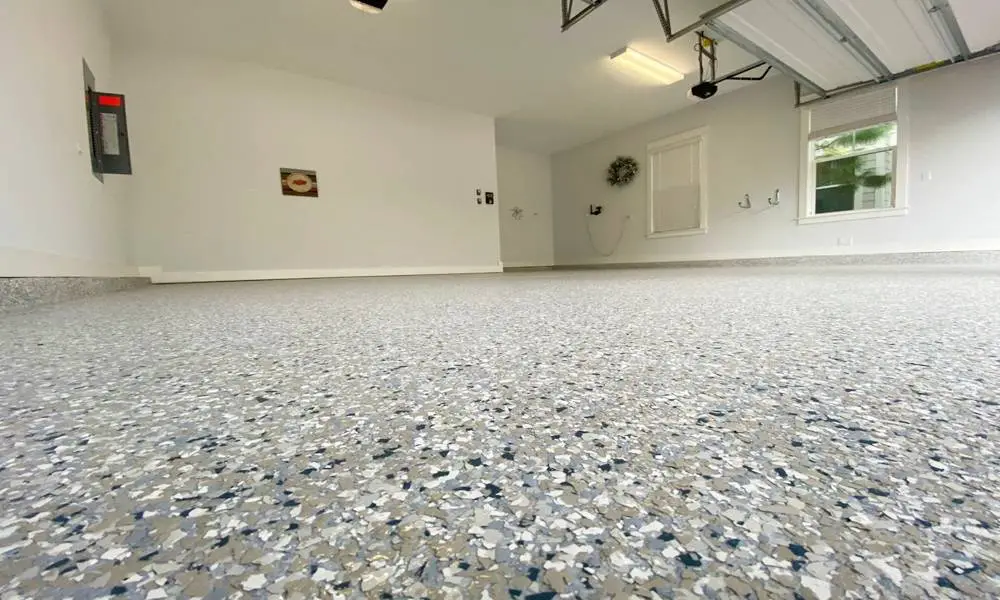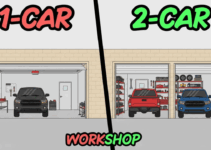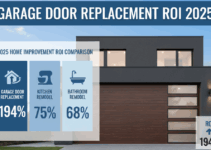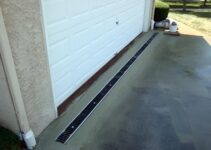Polyurethane for Garage Floor

When it comes to protecting and enhancing your garage floor, choosing the right coating is paramount. That’s why I’m here to introduce you to the world of polyurethane coatings specifically designed for garage floors.
Polyurethane coatings offer a durable finish that can withstand the daily wear and tear of a busy garage. Not only do they protect your floor from chemicals, abrasions, and other hazards, but they also provide a sleek and professional appearance.
In this article, I will delve into the top polyurethane coatings available for garage floors, highlighting their benefits, different types, and how to choose the best one for your needs. We’ll also explore the crucial steps of preparation and application, as well as maintenance tips to ensure the longevity of your coating.
Do you desire a garage floor that not only offers protection but also looks stunning? Then join me as we explore the world of polyurethane coatings, the best choice for your garage floor.
Benefits of Polyurethane Garage Floor Coatings
When it comes to protecting garage floor, polyurethane coatings offer a range of benefits that make them an excellent choice. Whether you’re looking to seal the surface, enhance the overall finish, or safeguard against chemicals and abrasions, polyurethane coatings deliver exceptional performance.
Here are some key advantages of using polyurethane coatings on your garage floor:
- Sealing the Surface: Polyurethane garage floor sealer creates a protective barrier that prevents moisture, oil, and other substances from penetrating the concrete. This helps to prolong the life of your garage floor and maintain its appearance.
- Enhancing the Finish: Polyurethane garage floor finish provides a glossy and smooth surface that enhances the aesthetic appeal of your garage. It gives your floor a professional look while also making it easier to clean and maintain.
- Protecting against Hazards: Polyurethane garage floor paint offers excellent resistance to chemicals, abrasions, and impacts. It can withstand heavy traffic, dropped tools, and other common garage mishaps, ensuring the longevity of your floor.
With these benefits in mind, it’s clear that polyurethane coatings are a top choice for homeowners looking to protect and enhance their garage floors. Whether you’re a car enthusiast, a DIY enthusiast, or simply want to transform your garage into a functional space, polyurethane coatings are a smart investment.
Different Types of Polyurethane Garage Floor Coatings
When it comes to protecting your garage floor, polyurethane coatings offer a range of options to suit your needs. Let’s take a closer look at the different types of polyurethane garage floor coatings available in the market:
1. Single-Component Coatings
Single-component polyurethane coatings provide a simple and easy-to-use solution for homeowners looking to enhance the durability of their garage floors. These coatings typically come in a ready-to-use form and require minimal preparation, making them ideal for DIY projects. While they offer good resistance to chemicals and abrasions, they may require multiple coats for optimal protection.
2. Two-Component Coatings
Two-component polyurethane coatings consist of a base and a hardener that are mixed together before application. These coatings offer excellent durability and superior protection against chemicals, stains, and abrasions. They are commonly used in high-traffic areas and commercial settings where maximum performance is required. However, they may have a longer curing time and can be more challenging to apply compared to single-component coatings.
3. Polyurea-Polyaspartic Systems
Polyurea-polyaspartic systems are known for their rapid curing times and high-performance properties. These coatings offer excellent adhesion to the garage floor surface, durability, and resistance to chemicals and UV rays. They can be applied in varying thicknesses, providing a customizable solution for different levels of protection. Polyurea-polyaspartic systems are often preferred by professionals due to their quick turnaround time and ability to withstand heavy use.
Each type of polyurethane garage floor coating has its own advantages and characteristics, catering to different budgets and preferences. Whether you’re a DIY enthusiast or a professional installer, there is a polyurethane coating that will meet your specific needs.
Choosing the Right Polyurethane Coating for Your Garage Floor
When it comes to selecting the best polyurethane coating for garage floor, a few key factors should be considered. The right coating will provide durable protection, resist chemicals and stains, be easy to apply, and offer various gloss options for a customized finish.
Factors to Consider:
- Durability: Look for a polyurethane coating that is designed to withstand heavy foot and vehicle traffic. This will ensure long-lasting protection for your garage floor.
- Chemical and Stain Resistance: Garage floors can be exposed to various chemicals, oils, and stains. Choose a polyurethane coating that offers excellent resistance to these substances to keep your floor looking clean and well-maintained.
- Easy Application: Consider the ease of application when selecting a polyurethane coating. Opt for a product that is user-friendly and doesn’t require extensive preparation or specialized equipment.
- Gloss Options: Polyurethane coatings come in different gloss levels, ranging from high gloss to satin. Choose a finish that complements your garage’s aesthetic and achieves the desired look.
To help you make an informed decision, here is a comparison table of some of the best polyurethane coatings for garage floors:
| Product | Durability | Chemical Resistance | Application | Gloss Options |
|---|---|---|---|---|
| Brand A Polyurethane Coating | High | Excellent | Easy | High Gloss, Satin |
| Brand B Polyurethane Coating | Medium | Good | Moderate | Satin |
| Brand C Polyurethane Coating | High | Excellent | Easy | High Gloss, Semi-gloss |
This table provides a brief overview of the durability, chemical resistance, ease of application, and available gloss options for each polyurethane coating. Analyze your specific needs and preferences to choose the coating that best aligns with your requirements.
Preparation Steps for Applying Polyurethane Coatings
Proper surface preparation is crucial to ensure a successful application of polyurethane coatings on your garage floor. By following these essential steps, you can create a clean, smooth, and durable surface that will maximize the performance and longevity of the coating.
- Garage Floor Cleaning: Begin by thoroughly cleaning the garage floor to remove any dirt, dust, grease, or oil. You can use a broom or vacuum to eliminate loose particles, followed by a degreaser or detergent to remove stubborn stains. Rinse the floor with water and allow it to dry completely before proceeding to the next step.
- Surface Repair: Inspect the garage floor for any cracks, chips, or imperfections. Use a suitable concrete repair product to fill in the cracks and repair damaged areas. Follow the manufacturer’s instructions for application and curing times. Once the repairs are complete, allow sufficient time for the product to cure before moving on.
- Etching or Grinding: Depending on the condition of your garage floor, you may need to etch or grind the surface to create a better bonding surface for the polyurethane coating. Etching involves applying an acid-based solution to the floor and scrubbing it with a stiff brush or broom. Grinding, on the other hand, involves using a floor grinder or sander to remove the top layer of concrete. This step helps improve adhesion and ensures a smooth finish.
- Surface Testing: Conduct a surface moisture test to determine if the garage floor is dry enough to proceed with the coating application. One method is to tape a plastic sheet to the floor and leave it overnight. If you notice condensation or moisture accumulation underneath the plastic in the morning, it indicates excessive moisture. In such cases, you may need to implement additional moisture mitigation measures or consult a professional.
By following these preparation steps, you can create a clean and properly prepared surface ready for the application of polyurethane coatings on your garage floor. This ensures optimal adhesion, durability, and overall performance of the coating.
| Preparation Steps for Polyurethane Coating Application | Instructions |
|---|---|
| Garage Floor Cleaning | Thoroughly clean the floor using a broom or vacuum. Use a degreaser or detergent to remove stains. Rinse with water and allow it to dry completely. |
| Surface Repair | Inspect for cracks and damage. Fill cracks with a suitable concrete repair product. Follow manufacturer’s instructions and allow for proper curing. |
| Etching or Grinding | Etch the floor with an acid-based solution or grind the surface to improve adhesion and create a smooth surface. |
| Surface Testing | Conduct a moisture test to ensure the floor is dry enough for coating application. Tape a plastic sheet to the floor overnight to check for condensation or moisture accumulation. |
Application Techniques for Polyurethane Garage Floor Coatings
When it comes to applying polyurethane coatings to your garage floor, there are various techniques to achieve a smooth and professional-looking finish. Understanding the application process is crucial for the success of your project. Here, I will guide you through the recommended techniques for applying polyurethane garage floor coatings.
1. Surface Preparation
Prior to applying the polyurethane coating, it is essential to prepare the surface meticulously. First, clean the garage floor thoroughly to remove any dirt, dust, oil, or grease. Use a suitable concrete cleaner and scrub the surface with a stiff-bristle brush. Rinse the floor with water and allow it to dry completely. Repair any cracks or imperfections with a concrete patching compound and ensure the surface is smooth.
2. Using Rollers
One of the most common and effective techniques for applying polyurethane to a garage floor is using rollers. Start by pouring the polyurethane coating into a paint tray. Dip a roller into the tray, ensuring it is evenly coated with the polyurethane. Begin applying the coating to the floor in small sections, using a back-and-forth rolling motion. Work in one direction to maintain consistency. Apply a thin, even coat and avoid excessive buildup or puddling.
3. Spraying
For larger garage floors or when seeking a more efficient application process, spraying is an alternative technique. Use a low-pressure airless sprayer or a HVLP (High Volume Low Pressure) sprayer specifically designed for applying garage floor coatings. Before spraying, mask off areas that should not be coated, such as walls or fixtures. Apply a thin, even coat of polyurethane using long, sweeping motions, overlapping each pass for uniform coverage.
4. Curing and Additional Coats
After completing the initial coat, allow the polyurethane coating to cure according to the manufacturer’s instructions. This typically involves a curing period of 12-24 hours. Once the initial coat is cured, you may choose to apply an additional coat for added durability and a more polished finish. Repeat the same application technique used for the first coat, ensuring proper curing time between coats.
5. Protecting the Surface
Once the polyurethane coating is fully cured, it is important to protect the surface from damage. Avoid dragging heavy objects or using abrasive cleaners that could scratch or wear down the coating. Regularly sweep or use a soft-bristled broom to remove any dirt or debris, and promptly clean up any spills to prevent staining.
6. Maintenance Tips
Proper maintenance will extend the life of your polyurethane garage floor coating. Periodically, clean the surface with a mild detergent and warm water, using a soft mop or microfiber cloth. Avoid harsh chemicals or abrasive cleaning tools that may degrade the coating. If the coating begins to show signs of wear, consider applying a fresh topcoat for enhanced protection.
Maintenance and Care for Polyurethane Garage Floor Coatings
Proper maintenance and care are essential to ensure the longevity and optimal performance of your polyurethane garage floor coating. By following best practices, you can keep your garage floor looking sleek and well-protected for years to come.
Cleaning
To maintain the appearance of your polyurethane garage floor coating, regular cleaning is necessary. Here are some guidelines:
- Sweep or vacuum the floor regularly to remove dust, dirt, and debris.
- For routine cleaning, use a mild detergent diluted in water and a soft mop or microfiber cloth.
- Avoid using harsh chemicals or abrasive cleaners, as they may damage the coating.
- Wipe up spills immediately to prevent staining.
Preventing Damage
Preventing damage to your polyurethane garage floor coating can help prolong its lifespan. Here are some preventative measures:
- Place mats or rugs at entry points to trap dirt and prevent it from being tracked onto the floor.
- Avoid dragging heavy objects across the floor, as this can cause scratches.
- Use furniture pads or coasters to protect the floor from scratches and indentation.
- Do not use sharp tools or equipment on the floor, as they can cause damage.
Addressing Wear and Tear
Over time, your polyurethane garage floor coating may experience wear and tear. It is important to address any issues promptly to prevent further damage. Here are some steps to take:
- If the coating becomes scratched or damaged, clean the area thoroughly and apply a polyurethane touch-up coat.
- Inspect the floor regularly for any signs of peeling or delamination. If found, consult a professional to assess and repair the coating.
- Consider adding an additional layer of polyurethane coating every few years to maintain its protective properties.
| Issue | Solution |
|---|---|
| Scratches or damage | Clean the area and apply a touch-up coat. |
| Peeling or delamination | Consult a professional for assessment and repair. |
| Regular maintenance | Add an additional layer of polyurethane coating every few years. |
Potential Issues and Troubleshooting for Polyurethane Garage Floor Coatings
When applying polyurethane coatings to garage floor, you may encounter some common issues that can affect the overall finish and performance. It’s important to understand these issues and learn how to troubleshoot them to ensure a successful application.
Bubbles and Streaks
If you notice bubbles or streaks in your polyurethane garage floor coating, it could be due to improper application techniques or environmental factors. Here are some troubleshooting steps:
- Ensure proper surface preparation by thoroughly cleaning and repairing any cracks or damages in the floor.
- Apply the polyurethane coating in thin, even layers using the recommended application method, such as a roller or brush.
- Avoid excessive rolling or brushing, as it can introduce air and cause bubbles or streaks.
- Work in small sections to maintain consistency and prevent the coating from drying too quickly.
- If bubbles or streaks appear during application, lightly sand the affected area and reapply the coating following the recommended steps.
Excessive Drying Time
In some cases, polyurethane garage floor coatings may take longer to dry than expected. This can be frustrating, but there are troubleshooting steps you can take:
- Ensure proper ventilation in the area to facilitate drying.
- Check the temperature and humidity levels. High humidity and low temperatures can significantly prolong the drying time.
- If the coating is still tacky after the recommended drying period, allow more time for curing before subjecting it to foot traffic or placing heavy objects on the floor.
- Avoid applying excessive layers of coating, as it can increase drying time.
Peeling or Delamination
If you experience peeling or delamination of your polyurethane garage floor coating, it could be due to inadequate surface preparation or incompatibility with the existing floor. Here’s how to troubleshoot this issue:
- Thoroughly clean and remove any contaminants from the garage floor before applying the coating.
- Ensure proper adhesion by roughening the surface or using a primer if recommended by the manufacturer.
- Use a polyurethane coating specifically designed for the type of floor you have, whether it’s concrete, epoxy, or another material.
- If the coating starts to peel or delaminate, remove the affected area by sanding or scraping and reapply the coating following the manufacturer’s instructions.
By understanding these potential issues and applying the appropriate troubleshooting techniques, you can overcome challenges and achieve a high-quality polyurethane garage floor coating that will provide long-lasting durability and aesthetic appeal.
Enhancing the Aesthetics of Your Polyurethane Coated Garage Floor
When it comes to your garage floor, aesthetics play a crucial role in creating a visually appealing space. Enhance the look of your polyurethane coated garage floor with these decorative options:
1. Color Flakes
Add a touch of color and texture to your garage floor with color flakes. These small, vinyl chips are available in a variety of colors and sizes, allowing you to create a customized look. The flakes are scattered onto the wet polyurethane coating, creating a speckled effect that hides imperfections and adds depth to the floor.
2. Metallic Pigments
Elevate the appearance of your garage floor with metallic pigments. These pigments create a stunning, metallic sheen that adds a luxurious touch to the space. The pigments can be mixed with the polyurethane coating and applied to the floor, resulting in a glossy finish that catches the light and transforms the look of your garage.
3. Decorative Elements
Get creative and personalize your garage floor with decorative elements. From stencils and patterns to logos and designs, you can add unique touches that reflect your style and interests. These decorative elements can be applied using special paints or epoxy coatings, complementing the polyurethane finish and creating a truly one-of-a-kind garage floor.
By exploring these decorative options, you can transform your garage floor from a simple functional space to a visually stunning area that enhances the overall aesthetics of your home.
Comparing Polyurethane Coatings to Other Garage Floor Finishes
When it comes to choosing the right finish for your garage floor, it’s essential to weigh the options and understand the strengths and weaknesses of different coatings. In this section, I will compare popular garage floor finishes, such as polyurethane coatings, epoxy coatings, and concrete stains, to help you make an informed decision for your specific needs.
Polyurethane Coatings
Polyurethane coatings are known for their durability and protection against chemicals, abrasions, and other common hazards. These coatings provide a sleek and glossy finish, enhancing the overall appearance of your garage floor. They are easy to clean and maintain, making them a popular choice for homeowners who want a long-lasting and visually appealing coating.
Epoxy Coatings
Epoxy coatings are another common choice for garage floors. They offer a strong and durable finish that can withstand heavy traffic and resist stains. Epoxy coatings are available in a wide range of colors and finishes, allowing for customization. However, they can be more challenging to apply compared to polyurethane coatings and may require professional installation to achieve optimal results.
Concrete Stains
Concrete stains are a unique option for garage floor finishes. They penetrate the concrete surface, creating a natural and translucent color that enhances the existing appearance. Concrete stains are available in a variety of colors and can be combined to create custom designs. However, it’s important to note that concrete stains do not provide the same level of protection and durability as polyurethane and epoxy coatings.
| Finish | Strengths | Weaknesses |
|---|---|---|
| Polyurethane Coatings | – Durable and long-lasting – Excellent chemical and abrasion resistance – Easy to clean and maintain |
– Requires proper surface preparation – Can be more expensive than other finishes |
| Epoxy Coatings | – Strong and durable – Resistant to stains and chemicals – Customizable appearance |
– More challenging to apply – Professional installation may be required – Can be more expensive than other finishes |
| Concrete Stains | – Natural and translucent color – Customizable designs – Can enhance the existing appearance |
– Limited protection and durability – Susceptible to wear and fading over time |
When choosing between polyurethane coatings, epoxy coatings, and concrete stains for your garage floor, consider your priorities in terms of durability, protection, customization, and budget. If you prioritize a high level of protection and long-lasting finish, polyurethane coatings may be the best option. However, if you prefer a customizable appearance and are willing to invest more time and effort in the application process, epoxy coatings or concrete stains may be worth considering.
Conclusion
After exploring the various aspects of polyurethane coatings for garage floors, it is clear that these coatings offer numerous benefits and advantages. With their durable finish, sleek appearance, and superior protection against chemicals and abrasions, polyurethane coatings are an excellent choice for transforming your garage floor.
When choosing the right polyurethane coating for your garage floor, consider factors such as durability, resistance to chemicals and stains, ease of application, and gloss options. By carefully selecting a high-quality polyurethane coating that suits your needs, you can ensure long-lasting results and a beautiful garage floor.
Remember, proper preparation and application techniques are key to achieving a professional-looking finish. Take the necessary steps to clean, repair, and prime your garage floor before applying the polyurethane coating. Whether you choose to use rollers or spraying, following the recommended application techniques will ensure a smooth and flawless result.
Maintaining and caring for your polyurethane garage floor coating is essential to its longevity. Regular cleaning and preventing damage, such as avoiding heavy impacts and using mats or rugs in high traffic areas, will help preserve the coating’s appearance and performance over time.
Overall, polyurethane coatings offer an effective and visually appealing solution for your garage floor. With their durability, longevity, and aesthetic enhancement abilities, they are a worthwhile investment. Upgrade your garage floor with a polyurethane coating and enjoy the benefits for years to come.


